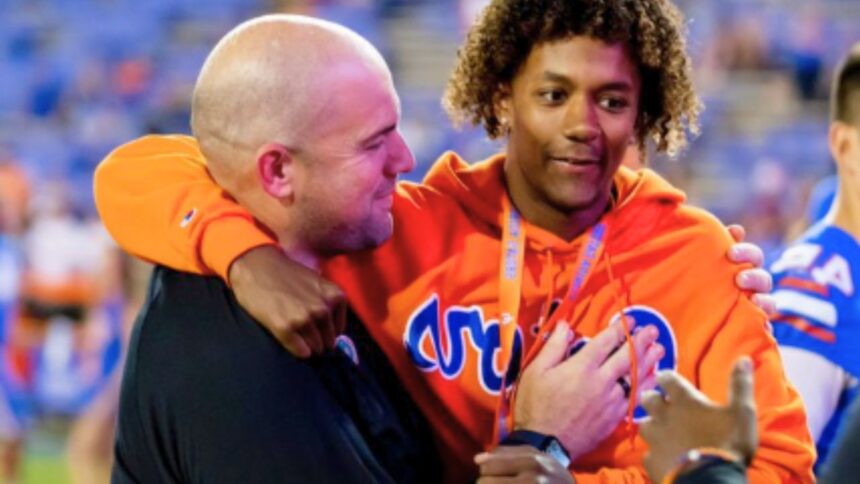“You’re going to see a lot tighter contracts and potential buyouts similar to the NFL.” This statement encapsulates the gravity of the lawsuit involving Jaden Rashada, former Florida recruit, and head coach Billy Napier. In late 2022, a massive NIL deal worth $13.85 million enticed Jaden Rashada, a promising QB, to join the University of Florida, switching his commitment from Miami.
This deal, facilitated by Florida’s top booster Hugh Hathcock and endorsed by head coach Billy Napier, appeared to be a life-changing opportunity. However, the situation took a drastic turn when the promised funds never materialized. As the legal battle unfolds, it sheds light on the vague world of NIL agreements in college sports.
Unpacking the NIL Controversy
Jaden Rashada’s lawsuit against Billy Napier sent shockwaves through college sports. Rashada, a Georgia QB, claims Napier misled him over a $13.85 million NIL deal. According to the lawsuit, Napier reassured Rashada, saying, “Don’t worry, you’re going to get your money. Sign with us.” This assurance is central to the fraud allegations.

Rashada’s attorney, Rusty Hardin, highlighted the broader implications, stating, “Sadly, this type of fraud is becoming more commonplace in the Wild West that is today’s college NIL landscape.” The lawsuit alleges fraudulent misrepresentation and inducement, aiming to hold those responsible accountable.
On Locked On Canes, Brian Smith, an expert on NIL deals, remarked, “Most of this stuff is done behind closed doors. Until recently, NIL was used as an inducement, which is illegal, so when kids didn’t get the money, they stayed quiet to avoid self-incrimination.” This secrecy allegedly paves the way for schools to make false promises without immediate repercussions.
Smith further elaborated, “If Rashada wins any money from this lawsuit, it will open doors on how schools act with NIL deals. We could see more stringent contracts and potential buyouts, similar to what we see in the NFL.” Many believe Rashada’s case could significantly change how universities and governing bodies manage and enforce NIL deals.
Napier and Rashada’s Legal Battle
Rashada’s lawsuit claims Florida abruptly terminated the promised NIL deal, leaving him without assured compensation. It details how the University of Florida persuaded Rashada to switch his commitment from Miami to Florida, only to allegedly never provide the promised funds after he committed. Rashada alleges that Napier and others involved never intended to fulfill the financial promises made to him.
Rashada’s legal team has supposedly presented evidence, including text messages, suggesting a deliberate attempt to mislead him about the availability of NIL funds. Rusty Hardin states, “Wealthy alumni, consumed by their schools’ athletic programs, are taking advantage of young people by offering them life-changing sums of money, only to renege on their commitments.” These revelations have called for increased regulation and supervision in the management of NIL deals.
The legal battle between Rashada and Napier highlights the existing issues with NIL deals in college sports. By seeking justice for alleged broken promises, Rashada’s case could standardize and better regulate NIL deals, ensuring that future agreements are clear, enforceable, and fair for all parties involved.




